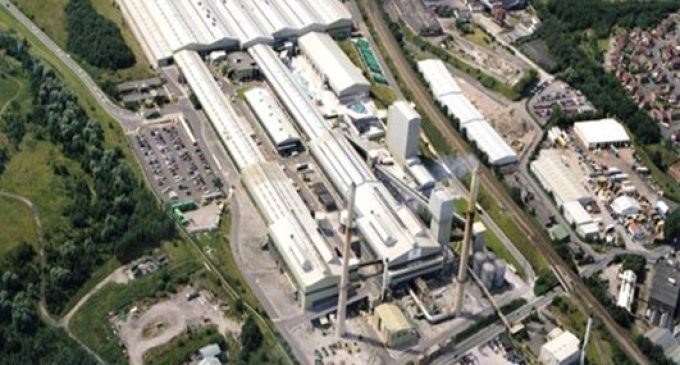Investment in sustainable glassmaking in the UK

Pilkington United Kingdom Limited, part of NSG Group, is making a multi-million-pound investment in its Merseyside facilities as part of a government-backed project that will save 15,000 tonnes of carbon emissions each year while securing the future of rolled glass manufacturing in the UK. Under the project, Pilkington UK will move its Watson Street manufacturing operations to its Greengate site (pictured) in St Helens.
The move represents a major investment in its Greengate glass furnace, which melts the raw materials into glass as part of the manufacturing process. The Greengate furnace will be upgraded to accommodate its continued production of flat glass, while delivering the additional output required from the relocation of its Watson Street rolled glass manufacturing line.
The project was instigated as the manufacturer’s furnace at Watson Street, where the business has operated since 1826, reaches its end of life. The site will be shutdown with all jobs from Watson Street being relocated to Greengate as part of the project.
Producing all glass out of the upgraded furnace, rather than running two, will save carbon emissions equivalent to taking 8,800 cars off the road each year*.
The work will begin in August 2023, with the line due to be up and running by August 2024. Watson Street will remain open until then, with no impact expected on the availability of glass while the work takes place.
The project will benefit from a £3.7 million grant via the government’s Industrial Energy Transformation Fund (IEFT), which helps cover the costs of industrial energy efficiency and decarbonisation projects in the UK.
Neil Syder, managing director of Pilkington UK, said: “This project represents one of the single biggest investments we’ve made in our UK manufacturing facilities in decades, and will ultimately secure the future of rolled glass manufacturing in the UK.
“Working out of one furnace will enable us to make a permanent and significant saving in CO2 emissions. It’s a radical shift in the way we operate, but we know that if we are to achieve our net-zero ambitions, we need to make change across all areas of our business.
“The Watson Street site has been operating since the 1800s and forms a key piece of our history. Throughout the years, the site has been instrumental in the development of different products, paving the way for a rich history of innovation in glass solutions.
“Yet this move marks a new chapter in our story that allows us to embrace more sustainable ways of making glass and continue to drive forward our vision for change, in partnership with the industry.”
Last year, the Science Based Targets initiative (SBTi) certified NSG Group’s aims to reduce greenhouse gas emissions by 30% by 2030, compared to 2018 levels. This forms the basis of the business’ plan to achieve carbon neutrality by 2050.
The move also follows other work by NSG Group to reduce the emissions of its operations. The Greengate site completed several world-first trials of low carbon biofuel and zero carbon hydrogen fuels to fire its glass furnace last year. NSG Group will continue to promote actions for decarbonization to realize a sustainable society.
The NSG Group is the world’s leading supplier of glass and glazing systems in the business areas of Architectural, Automotive and Creative Technology. Architectural manufactures and supplies architectural glass as well as glass for the solar energy and other sectors.
Automotive serves the original equipment (OE) and aftermarket replacement (AGR) glazing markets. Creative Technology comprises several discrete businesses, including lenses and light guides for printers and scanners, and specialty glass fiber products such as glass cord for timing belts and glass flake.
*Based on a carbon saving of 15,000 tonnes of CO2 and the average CO2 emissions per car per year in the UK of 1.7 million grams (NimbleFins)




















